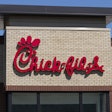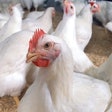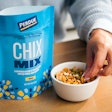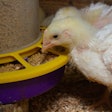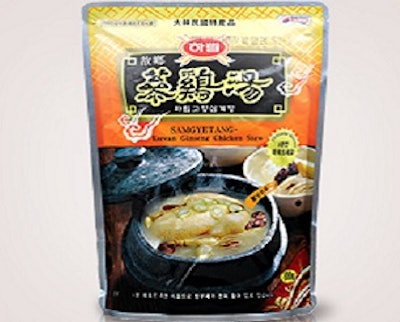
As Allen Harim Foods prepares to begin operations in Millsboro, Del., it intends to specialize in poultry products not yet established in the United States. The company plans to process what it refers to as a "ginseng bird," a smaller chicken that gets its name from its use in ginseng stew.
While not breed-specific, the ginseng bird is a genetic cross between a male broiler and a female layer, said Matt Hamilton, senior manager of sales for Allen Harim Foods. However, it is much smaller than traditional broilers, reaching weights of around 2 pounds during its 45-day growth cycle.
That variety of chicken is currently unavailable in the U.S., said Hamilton, but the company's pending purchase of a closed Pinnacle Foods pickle plant in Millsboro should give Allen Harim Foods an opportunity to make the specialty chicken product more available.
Ever since South Korean food company Harim Corp. bought the bankrupt Allen Family Foods in 2011, Allen Harim Foods wanted a cook plant that processes the birds for ginseng stew in the United States. A demand for ginseng birds exists in U.S. cities with a substantial Korean population, as well as in other communities where the Korean influence has spread, Hamilton said.
"The Korean population will be familiar with this product. The Harim group believes this population is underserved, and they have learned to make do with other in tems such as the Cornish hen instead of the ginseng birds," Hamilton said.
Cornish hens are typically only 22-25 days old when processed, Hamilton said, making them less conducive as a stew ingredient. "The bird actually falls apart when you stew it, because it's such a young bird. This ginseng bird is genetically different than other birds. It is a very slow-growing bird. It is a much firmer meat, and it also has a very thick skin, so when you are stewing this bird, it doesn't fall apart," Hamilton said.
While some of the ginseng birds processed in Delaware will be sold in the states, more are expected to be exported to Asian markets outside of Korea. A lack of available agricultural land and domestic feed has hindered production increases in Korea, as have trade barriers that prevent Korean commodities from being exported to other nations.
Allen Harim Foods, which owns 26 company farms in the United States, is expected to grow its own birds at some of those farms.
Poultry facility will be two plants in one
Initially, Allen Harim Foods was considering building a cook plant for ginseng birds in Harbeson, Del., next to an existing Allen Harim facility that produces case-ready, tray-pack poultry products. However, it would have required a hefty investment to start a cook plant from scratch. When the State of Delaware contacted Allen Harim to let the poultry company know the Pinnacle facility was available, the company reassessed its plans. With a structure already built, and 107 acres around it, Allen Harim pursued purchasing it.
"It's a fantastic facility. The Pinnacle folks have done a good job of maintaining it, and it's almost 500,000 square feet. We started thinking about splitting it in half, with one half of it being a cook plant and the other half a regular processing plant."
With essentially two plants in one building, Hamilton said the company also expects to use the facility to process canned poultry products, which are also popular in Korea. The company is also considering some products for domestic production, including fully cooked poultry products, further-processed foods and antibiotic-free poultry.
Allen Harim hopes to process up to 2 million birds a week on the processing side of the proposed Millsboro plant, while plans for the further-processed side of the plant are still in the early stages.
Purchase of plant still pending
Pinnacle Foods has accepted Allen Harim's offer to buy the plant, but the purchase has not been finalized as both parties are in the due-diligence period. The deal was earlier expected to close in mid-April, but the closing has been pushed back by as much as six months while both companies make sure there are no environmental issues. The property includes a 107-acre parcel of land near a tributary that feeds into the Chesapeake Bay system.
Once Allen Harim takes ownership, a major transformation of the building will take place. The company's goal is to have the plant in operation between mid-2015 and January 2016.
Upgrades planned for the plant include installing drains in the floors, adding refrigeration systems, putting the processing equipment on one side of the plant and the further processing equipment on the other side, and updating the facility's wastewater treatment system. The gravel parking lot on the grounds will also be paved in an effort to minimize the dust.







